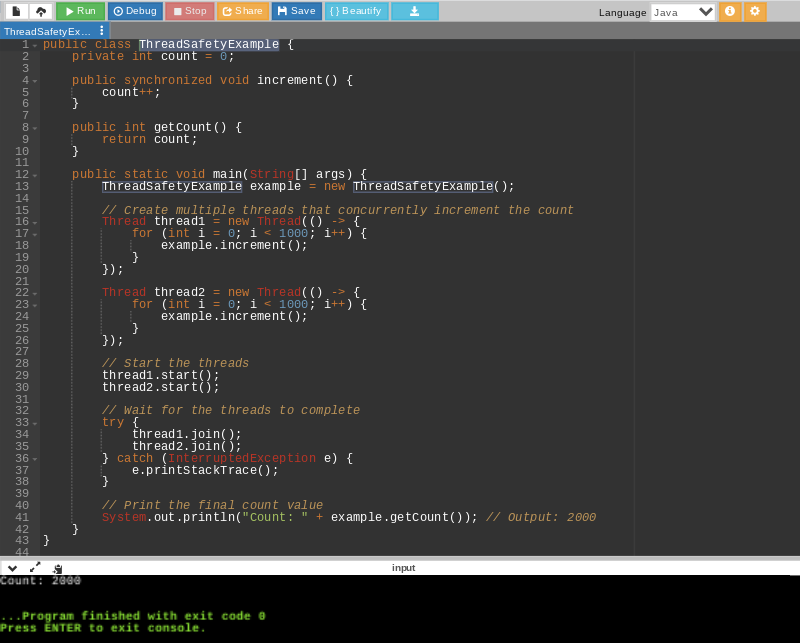Immutable Strings: A Key Component in Ensuring Data Consistency and Reliability
In the world of information monitoring, the relevance of unalterable strings can not be overstated. The idea of immutable strings transcends simple technicality; it is a cornerstone in the complicated internet of information administration.
The Concept of Immutable Strings
Unalterable strings, an essential principle in programming, refer to strings that can not be modified once they are produced. Basically, as soon as a string worth is designated, any operation that appears to modify the string actually develops a brand-new string. This immutability makes certain information uniformity and dependability in applications, as it stops unanticipated modifications to the initial data.
Advantages in Information Consistency

Data uniformity is critical in numerous elements of software application advancement, including database administration, multi-threaded settings, and dispersed systems (Why are strings immutable in Java?). Immutable strings contribute significantly to attaining this consistency by stopping information corruption as a result of concurrent accessibility. In circumstances where several processes or threads engage with the same data all at once, unalterable strings serve as a guard against race problems and synchronization issues
In addition, the immutability of strings streamlines debugging and screening procedures. With unalterable strings, programmers can rely on that when a string is established, it will certainly remain unmodified, making it easier to map the source of errors and guaranteeing that examination instances generate regular results. This integrity in data dealing with eventually results in a lot more stable and durable applications.

Executing Immutable Strings
Making sure the immutability of strings calls for a thoughtful technique to their implementation in software program advancement. One essential method is to make string courses in a means that protects against modifications as soon as a string item is created. By making strings unalterable, developers can enhance information consistency and dependability in their applications.
To implement unalterable strings efficiently, programmers need to favor developing brand-new string items instead of changing existing ones. This practice makes sure that when a string is appointed a value, it can not be changed. In addition, any kind of procedure that shows up to change the string must create a brand-new string with the preferred adjustments rather than altering the initial.
In addition, utilizing unalterable strings can streamline concurrency administration in multi-threaded environments. Given that unalterable strings can not be altered after development, they can be safely shared amongst several strings without the risk of data corruption.
Duty in Reliability Assurance
In software application advancement, the use of unalterable strings plays an essential duty in making certain the reliability of information procedures. Immutable strings, when produced, can not be modified, guaranteeing that the data they represent continues to be regular throughout the application's execution. This immutability home gives a degree of guarantee that the data being refined will certainly not be unintentionally changed, resulting in unexpected outcomes or mistakes in the system.
By including unalterable strings right into software style, developers can boost the dependability of their applications by decreasing the dangers connected with mutable information - Why are strings immutable in Java?. Immutable strings assist in avoiding information corruption or unintentional modifications, which can be particularly essential when managing delicate details or when information integrity is extremely important
In addition, making use of unalterable strings streamlines concurrent processing, as several strings can safely gain access to and share string information without the risk of one thread modifying the material while one more reads it. This element contributes significantly to the general reliability of the software application system, making certain foreseeable and consistent behavior in data handling Read Full Report procedures.
Applications and System Assimilation
The seamless assimilation of unalterable strings into various applications and systems is essential for ensuring robust data consistency and integrity across diverse technical atmospheres - Why are strings immutable in Java?. Unalterable strings play an important duty in enhancing the honesty of data exchanges and interactions within complicated software environments. By integrating unalterable strings right into applications, designers can mitigate the risks connected with data meddling, unauthorized adjustments, and unintended changes, thus strengthening the general security stance of the system
In the context of system assimilation, unalterable strings act as a foundational component for establishing secure communication channels and facilitating seamless information transfers in between various components. Their unalterable nature makes certain that information transferred between systems stays proven and unmodified, lowering the likelihood of disparities or mistakes that can jeopardize the stability of the whole system. Additionally, immutable strings can boost interoperability in between diverse systems by giving a standardized format for data depiction, making it possible for more reliable information handling and exchange methods across interconnected platforms. By adopting unalterable strings in applications and system integration procedures, organizations can strengthen their data facilities and maintain the reliability and uniformity of their information possessions.
Verdict
In verdict, unalterable strings play a crucial duty in maintaining information uniformity and integrity in various applications and system integrations. By making sure that strings can not be altered once created, the stability of information is preserved, reducing the danger of variances and mistakes. Applying unalterable strings can dramatically enhance the reliability of systems, inevitably bring about more reputable and accurate data handling.
